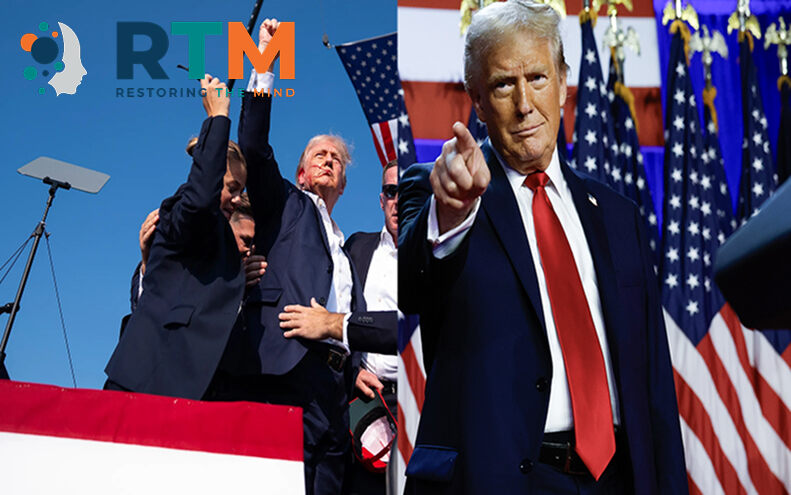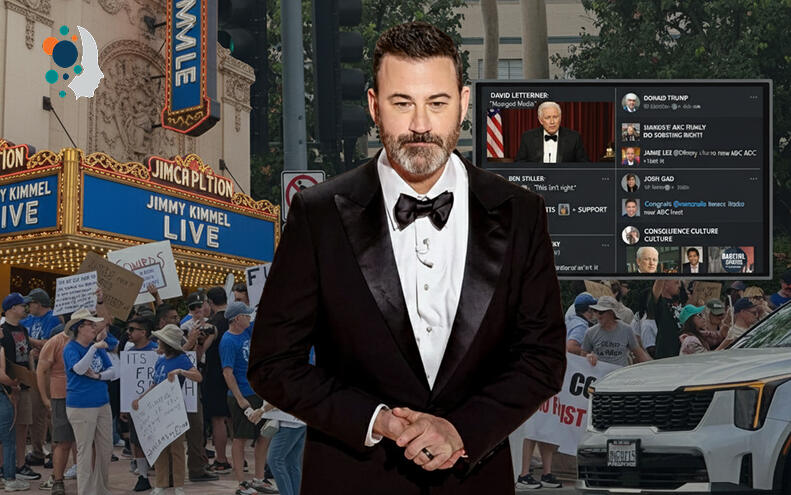Washington, D.C. – President Donald Trump continues to use strong rhetoric and decisive actions to project authority. Still, his administration is beginning to face challenges on multiple fronts, from the economy and foreign policy to public health and legal disputes. While his approach energises his supporters, it is also generating questions about the long-term impact of his policies and the balance of power in U.S. governance.
Trump’s Latest Statements and Social Media Posts
Over the weekend, President Trump shared a social media meme suggesting he would use federal power to address crime in Chicago, part of his broader campaign to highlight law and order issues in Democratic-led cities. The post reflected his wider strategy of positioning himself as a leader willing to act forcefully, even when such statements draw criticism.
For Trump’s base, this style demonstrates strength and decisiveness. Critics, however, argue that such rhetoric raises concerns about constitutional limits and the role of the presidency.

A New Phase of the Administration
Eight months into his second term, analysts say the administration may be entering a new phase. Rapid policy moves, frequent use of executive authority, and significant debates in the courts marked the early months. Democrats struggled to organise an adequate response, while courts worked to assess the constitutional boundaries of Trump’s actions.
Now, as policies begin to take effect, the administration faces measurable impacts on the economy, healthcare, foreign relations, and domestic governance.
Economic Challenges Emerging
The U.S. economy, a central point of Trump’s first term, is showing signs of strain. A new jobs report indicated only 22,000 positions were created in August, with negative job growth recorded in June. The unemployment rate rose to 4.3%, the highest level since 2021.
Manufacturing, a sector Trump has consistently championed, has been particularly affected. Analysts point to the administration’s tariff policies and immigration measures as contributing factors. While Trump maintains that his trade strategies will strengthen American industry, short-term effects are being felt in hiring and production.
For many Americans, the cost of living remains a pressing concern. Despite administration claims that prices are stabilising, household expenses continue to rise. Economists warn that this disconnect between official statements and public experience could erode confidence in the administration’s economic message.
Public Health Debates Intensify
Public health policy has become another area of focus. A Senate hearing last week featured sharp exchanges involving Health and Human Services Secretary Robert F. Kennedy Jr., who has voiced scepticism about vaccines. The discussion highlighted the administration’s willingness to revisit established public health practices.
Observers note that this approach raises questions about preparedness for potential health crises, particularly with the possibility of new seasonal epidemics. Supporters argue that the administration is prioritising personal choice and scepticism of government mandates, while critics fear setbacks in vaccination coverage and disease prevention.
Foreign Policy Pressures
On the international stage, Trump’s foreign policy has faced new tests. A recent summit with Russian President Vladimir Putin, intended to advance peace efforts, has been followed by an escalation in Ukraine, including the largest air assault on Kyiv since the war began. This development has drawn attention to the effectiveness of Trump’s diplomacy with Russia.
The administration has also been dealing with strained relations with India. Trump’s tariff policies have created friction with New Delhi, pushing India closer to China, a move that complicates U.S. strategic interests in Asia.
At home, legal rulings have challenged aspects of Trump’s foreign and domestic policies. A federal judge ruled that the president’s use of the National Guard in California earlier this year violated the law. Another judge blocked the use of the Alien Enemies Act to deport Venezuelan nationals. At the same time, separate rulings reversed funding cuts to Harvard University and halted the termination of temporary protected status for Haitian and Venezuelan immigrants.
Military Actions and Legal Questions
The administration has also expanded its actions against drug cartels. Last week, U.S. forces targeted a speedboat off Venezuela believed to be carrying traffickers. While officials defended the strike, legal experts noted that such operations raise constitutional questions about the president’s authority to act without congressional approval.
Vice President JD Vance and Defence Secretary Pete Hegseth both defended the operation, with Hegseth describing it as entirely within U.S. authority. Critics, however, questioned the precedent set by conducting lethal operations without legislative oversight.
Domestic Political Environment
Domestically, Trump has relied on executive power to pursue his agenda, often clashing with courts and state governments. Governors such as California’s Gavin Newsom and Illinois’ JB Pritzker have emerged as vocal critics, using state platforms to counter federal policies.
Despite legal setbacks, Trump continues to emphasise law and order. His administration has sent federal forces, including National Guard units, into cities facing crime and homelessness issues. Supporters credit these actions with reducing crime rates, while opponents argue that they raise concerns about the militarisation of domestic policing.
Support From Key Allies
Trump continues to enjoy strong backing from prominent supporters. Figures such as Florida’s Surgeon General Joseph Ladapo have praised the president for his resilience and leadership. Cabinet members, including Secretary Hegseth, remain vocal defenders of his policies, presenting a united front within the administration.
Republican lawmakers, meanwhile, have shown little interest in challenging Trump’s use of executive power. Analysts say this dynamic allows the president broad freedom to pursue policies, even when courts intervene.








